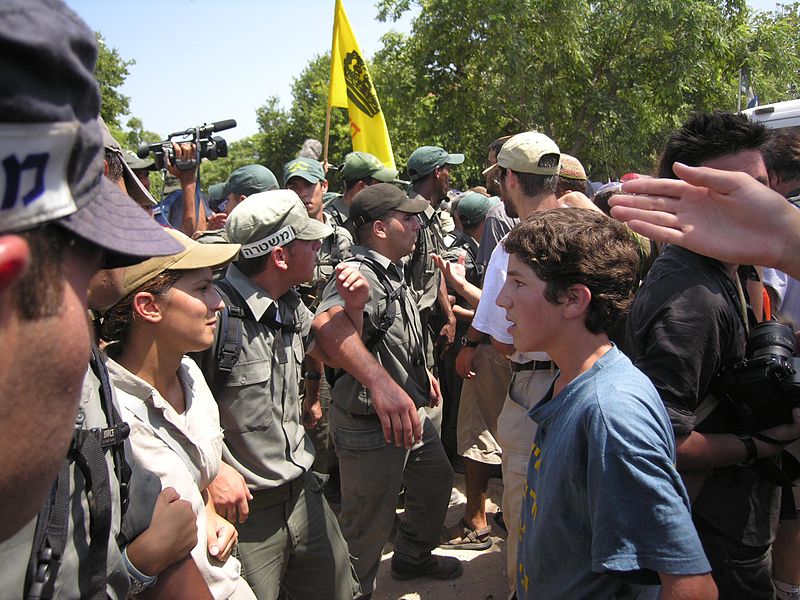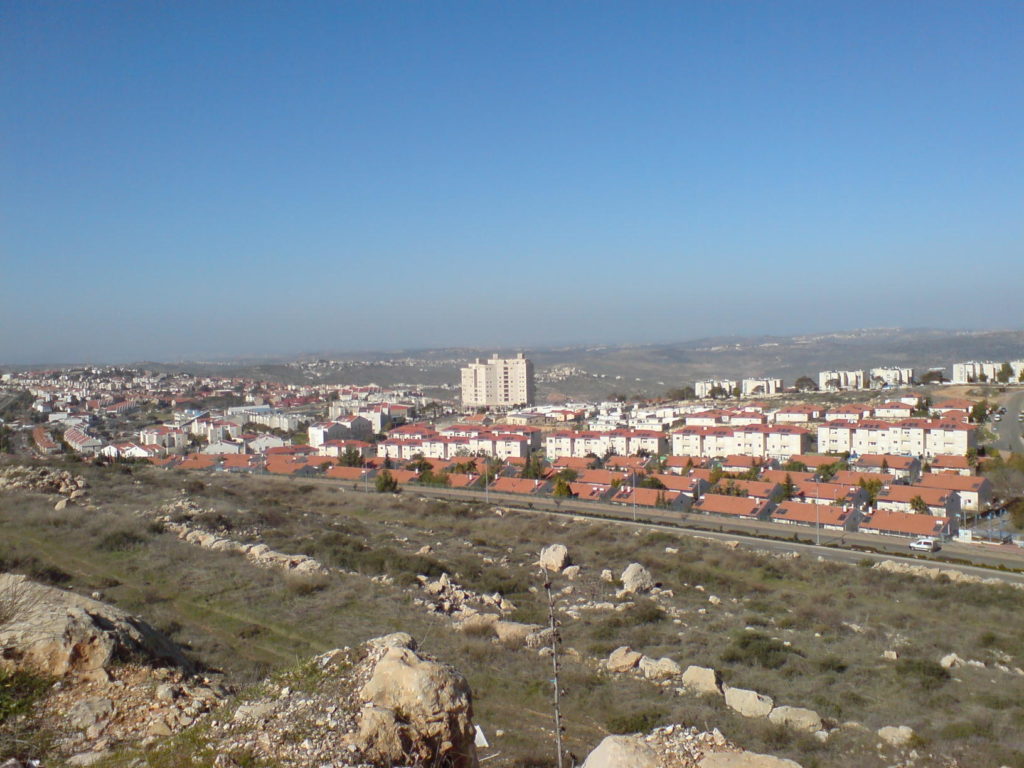Settlements are Jewish communities established in territories captured by Israel during the 1967 Six-Day War. Palestinians and many other countries consider these territories “occupied” by Israel, while Israel believes they are disputed territories over which there are competing claims. Which is a whole contested thing, so before we dive into settlements, we have to talk about *where* they are.
Where are the settlements?
Settlements are located in three places: the West Bank, parts of Eastern Jerusalem, and the Golan Heights.
Typically, when people talk about Israeli settlements, they’re talking about the West Bank. Israel doesn’t consider neighborhoods in the Golan and Eastern Jerusalem to be settlements, because it annexed those regions to Israel proper — even if the international community doesn’t recognize Israeli sovereignty there. But the West Bank was not annexed to the State of Israel proper. Israel continues to exercise military and security authority in the area, though daily civil matters for most Palestinians are administered by the Palestinian Authority. This liminal status of the territories — neither annexed nor independent — leads to a whole host of issues.
Important side note: There were settlements in Gaza, but they were evacuated in 2005, when 8,000 Jewish settlers were forcibly removed by the Israel Defense Forces under the orders of Prime Minister Ariel Sharon.

There were also settlements in the Sinai Peninsula, but those were removed as part of the peace treaty with Egypt which returned the territory to Egypt.
Why are settlements so controversial?
In short, because they are Jewish communities on a land that many want to become part of a future Palestinian state.
As My Jewish Learning points out, “Critics of settlements contend that the ongoing presence of these Jewish communities in the West Bank — and the resultant judicial system in which settlers and Palestinians are subject to different treatment and have different rights — will eventually present Israeli leaders with a difficult choice: between granting full citizenship to all Palestinians under its control and thus threatening Israel’s character as a Jewish state or maintaining the status quo, in which West Bank Palestinians are not eligible to become Israeli citizens, and thus threatening Israel’s status as a democracy.”
Critics of settlements also accuse settlers of frequent violence toward Palestinians and their property. They say settlements are stolen land — physical entrenchments of Israel’s illegal and unjust control over what they see as rightful Palestinian territory.
Why do Israelis choose to live in settlements?
For some, it’s for ideological/religious reasons (which we’ll get into below); for others, it’s simply cheaper housing. Many settlement neighborhoods are within easy commuting distance of major Israeli cities and present a more affordable cost of living and a kind of pastoral quality of life — you know, the same reason some New Yorkers might move to Jersey. These settlers have left Israel’s crowded middle for airy communities in a beautiful landscape, often with government subsidies that make their homes cheaper than alternatives within Israel proper.
How many settlements are there?
In 1967, there were about 1,500 settlers. By 2017, that number had risen to 413,400. As of writing this in 2019, over 3 million people live in the West Bank; 87% are Palestinians and 13% are settlers. Excluding Eastern Jerusalem, there are 132 “official” settlements — those recognized by the Israeli government — and 106 illegal outposts, or settlements established since the 1990s without government approval.
What do you mean by ideological settlers?
Ideological settlers are people who choose to live in the West Bank because they believe it is part of the land that God promised to Abraham and his descendants in the Bible. These settlers generally believe in the notion of “Greater Israel” — that is, that all of the land extending from the Mediterranean sea to the Jordan River, north to the borders with Lebanon and Syria, and south to the Red Sea, constitutes a Jewish inheritance.
Where did this belief come from?
The ideology of the religious settler movement draws significantly from the messianic beliefs of religious Zionism — specifically, the teachings of Rabbi Avraham Yitzhak Kook and his son Rabbi Zvi Yehuda Kook about active redemption.

Rabbi Zvi Yehuda proclaimed in May 1967, a month before the Six-Day War, “Where is our Hebron — have we forgotten her?! Where is our Shechem, our Jericho, — where? — Have we forgotten them? And all that lies beyond the Jordan — each and every clod of earth, every region, hill, valley, every plot of land, that is part of Eretz Israel — have we the right to give up even one grain of the Land of God?”
Basically, he believed that the Jewish settlement in the land of Israel was step one in the redemption of the Jewish people, which would lead to the arrival of the Messiah.
What’s all this about the Messiah?
Fair question.
Many Orthodox Jews believe that the Messiah will reign over a restored kingdom of Israel with the ingathering of all the Jews from exile and the building of the Third Temple.
Ultra-Orthodox Jews, also known as haredim, typically take a passive stance towards the arrival of the Messiah, believing that only a divinely driven return to the Promised Land will lead to the start of the Messianic Age. That’s why some religious Jews initially rejected Zionism and the State of Israel (and a few still do, like the ultra-Orthodox Satmars).
Still, some Orthodox Jews saw the “hand of God” behind the largely secular Zionist movement. The elder Rabbi Kook taught that “redemption was a process, not an event,” and he took this idea one step further in his linkage of redemption and the politics of settlement. (See Gadi Taub, The Settlers: And the Struggle Over the Meaning of Zionism.)
What are “facts on the ground”?
This is a term coined to refer to settlements meant to establish a permanent Israeli presence that would make the establishment of a Palestinian state impossible.
Won’t Israel just evacuate the settlements as part of a peace deal?
Obviously, Palestinians and many Israelis on the left see the settlements as a huge impediment to peace, saying they make a viable Palestinian state impossible. Some proposed solutions have included forced evacuations, construction freezes, or land swaps, yet none of these have the possibility to make everyone happy.

It’s important to note that some settlements function as actual cities — like Ariel, which has 20,000 residents and a university — and they are likely not going anywhere soon. The last time Israel forcibly removed settlers, it took about 8,000 people from two dozen small settlements in Gaza and it was a national trauma.
In the West Bank, we’re talking about hundreds of thousands of people scattered across 200 settlements. It’s growing harder and harder to imagine all these settlements will be evacuated (which of course was precisely the point of establishing them in the first place).
So if settlements aren’t going anywhere, what else might happen?
The proposals advanced in the last serious round of negotiations would have Israel annex settlements with large populations that are close to Israel proper (i.e. Efrat) and compensate Palestinians with land swaps. Some small, outlying settlements with small populations might be dismantled.
The difficult issue is what to do with settlements that don’t fall into either category — those that are neither small, nor close. Some folks have suggested more creative solutions, like bypass roads that would allow these settlements to stay while permitting Israelis and Palestinians to get around without having to interact (i.e. pass through checkpoints), but these have not been thoroughly figured out.
Recently, members of the Israeli right, including Prime Minister Benjamin Netanyahu, have endorsed annexing some or all settlements to Israel even without a peace deal.
So, who knows?
Israel Defense Forces
The Israel Defense Forces, commonly referred to as the IDF, is Israel’s military.
Six-Day War
The Six-Day War was a war between Israel and multiple Arab states in 1967 that resulted in Israel vastly expanding the territory under its control, including the disputed territories of the West Bank and Gaza Strip.
Golan Heights
The Golan Heights is a plateau captured by Israel from Syria in the 1967 war. It was effectively annexed by Israel in 1981.
West Bank
The West Bank is the territory captured from Jordan by Israel in 1967. It remains the core piece of disputed territory between Israelis and Palestinians.
Gaza
The Gaza Strip is a coastal territory bordered by Israel, Egypt and the Mediterranean Sea. The strip was occupied by Israel following the 1967 war and returned to Palestinian control in 2005.